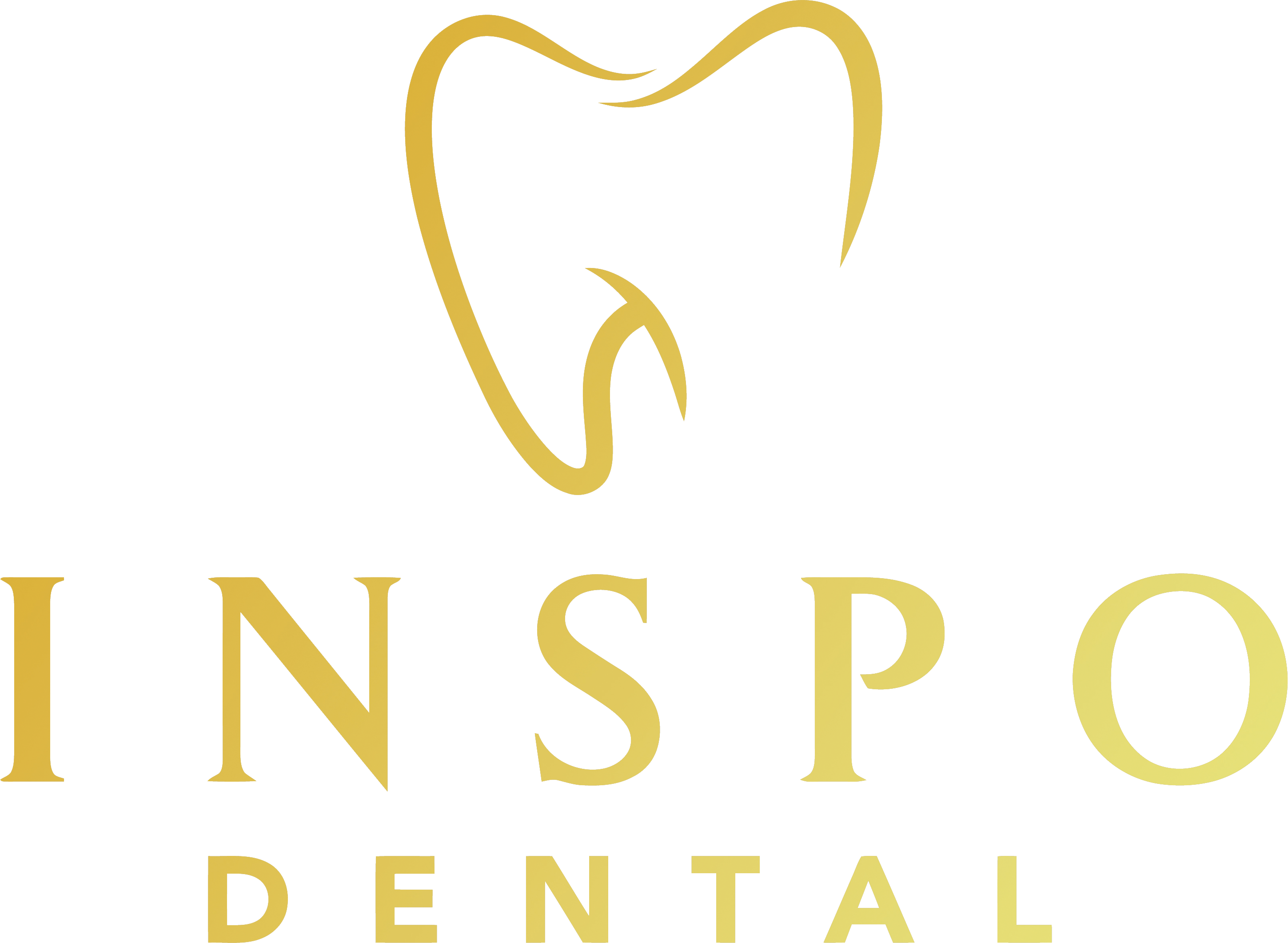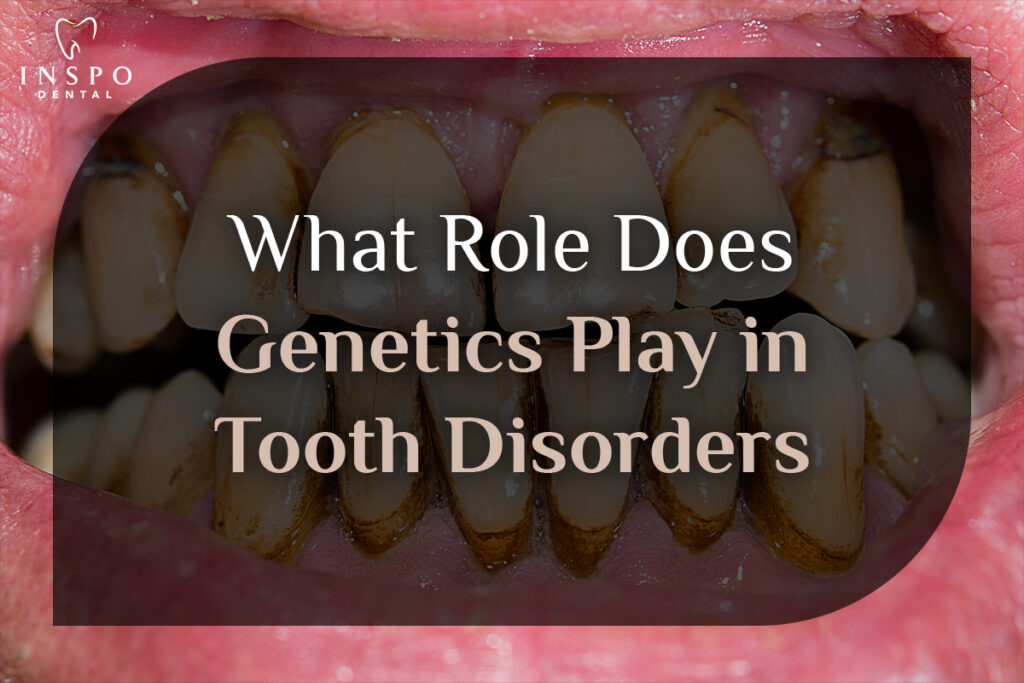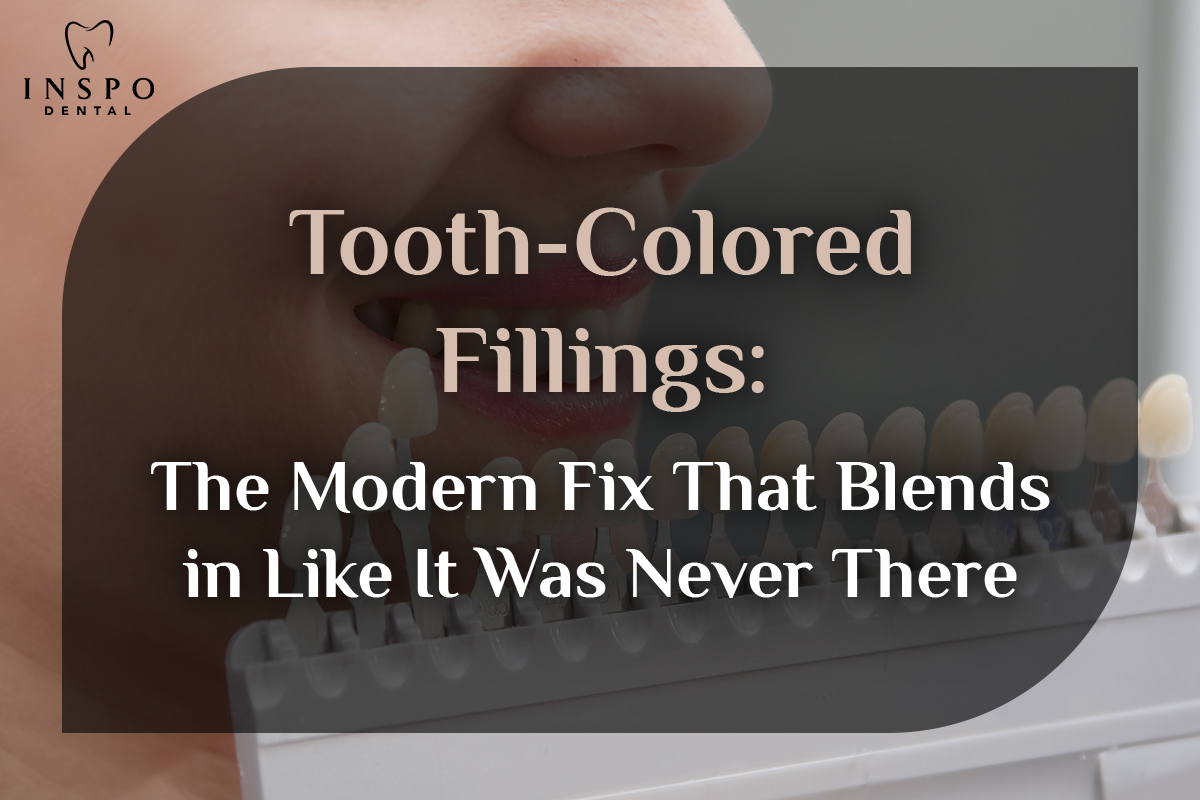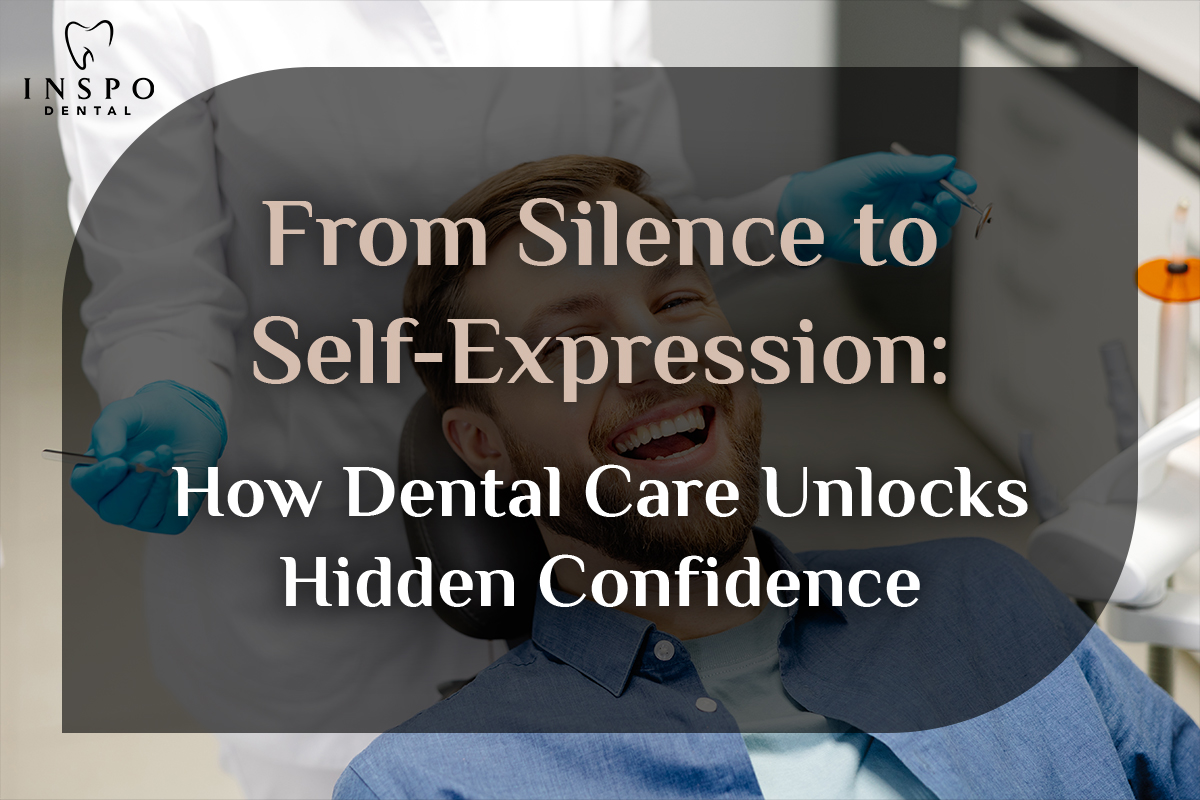Genetics plays a significant role in the development, structure, and overall health of teeth. Many tooth disorders are inherited or have a genetic component, which can affect not only the appearance of teeth but also their function and susceptibility to disease. Here’s an overview of how genetics influences tooth disorders:
- Genetic Influence on Tooth Development and Structure
- Congenital Missing Teeth (Hypodontia and Oligodontia):
Hypodontia refers to the absence of one to five permanent teeth, while oligodontia involves the absence of six or more teeth. These conditions are often hereditary, with specific genes linked to the development of teeth. For example, mutations in the PAX9 and MSX1 genes have been associated with these conditions. - Supernumerary Teeth (Hyperdontia):
Hyperdontia is the presence of extra teeth beyond the normal number, often in unusual positions. This condition can be genetic, and it is commonly associated with syndromes like Gardner’s syndrome and cleidocranial dysplasia, both of which have a genetic basis. - Amelogenesis Imperfecta:
This genetic condition affects the enamel, causing it to be thin, discolored, and prone to wear and breakage. Mutations in genes like ENAM and AMELX affect the formation of enamel, leading to weakened, yellow, or brown teeth. Amelogenesis imperfecta can vary in severity and affect both primary and permanent teeth. - Dentinogenesis Imperfecta:
This condition affects the dentin, the layer beneath the enamel. It results in discolored, translucent teeth that are weak and prone to fractures. Dentinogenesis imperfecta is often associated with mutations in the DSPP gene and is sometimes linked to osteogenesis imperfecta, a genetic disorder affecting bone strength.
- Genetic Factors in Tooth Shape, Size, and Alignment
- Malocclusion and Misalignment:
Genetics can influence jaw size, tooth size, and shape, which can lead to misalignment or malocclusion (improper bite). For example, if parents have crowded or misaligned teeth, their children may inherit similar traits, increasing the likelihood of requiring orthodontic treatment. - Tooth Size and Shape Variations:
Some individuals inherit unusual tooth shapes, such as peg-shaped lateral incisors or teeth that are smaller than average (microdontia). These traits are often passed down within families and can affect both the appearance and function of the teeth.
- Genetic Susceptibility to Tooth Decay and Gum Disease
- Dental Caries (Tooth Decay):
While diet and oral hygiene are major factors, genetics can influence susceptibility to tooth decay. Some people inherit traits that affect enamel thickness, saliva composition, and the oral microbiome, all of which can impact cavity formation. For example, certain genes influence how resistant enamel is to acids produced by bacteria in the mouth. - Periodontal (Gum) Disease:
Genetic factors can make some individuals more susceptible to gum disease. Variants in genes related to the immune response, such as IL-1 and TNF-α, are linked to an increased risk of periodontal disease. These genes affect inflammation and the body’s ability to respond to bacteria, which play a key role in gum disease progression. - Erosion and Sensitivity:
Some individuals may have a genetic predisposition to enamel erosion and sensitivity, particularly if they inherit thinner enamel or weaker dentin. This can make their teeth more vulnerable to acids from food and drink or to extreme temperatures.
- Syndromic and Non-Syndromic Genetic Tooth Disorders
- Ectodermal Dysplasia:
This group of genetic disorders affects the development of ectodermal tissues, including teeth. People with ectodermal dysplasia often have missing, malformed, or misshapen teeth. This disorder can also affect hair, nails, and sweat glands. - Cleft Lip and Palate:
Cleft lip and palate can be influenced by genetic factors and are often accompanied by dental abnormalities. Individuals with cleft palate may have missing, extra, or malformed teeth in the affected area, and they are more susceptible to dental problems due to the structural challenges of the cleft. - Down Syndrome:
Individuals with Down syndrome often experience a range of dental abnormalities, including delayed tooth eruption, smaller-than-average teeth, missing teeth, and an increased risk of periodontal disease. Genetic changes associated with Down syndrome affect overall growth and development, including that of the teeth and jaw. - Other Genetic Syndromes Affecting Teeth:
Other syndromes with a genetic basis, such as Turner syndrome, Marfan syndrome, and Treacher Collins syndrome, can also affect dental development, leading to abnormalities in tooth number, shape, and position.
- Genetic Predisposition to Oral Health Conditions
- Oral Cancer:
While environmental factors like tobacco and alcohol use are significant contributors, genetic factors can influence susceptibility to oral cancer. Certain genetic mutations can increase an individual’s likelihood of developing cancer in the mouth, gums, or throat. - Salivary Gland Disorders:
Genetics can also affect the function of the salivary glands, influencing saliva production and composition. Low saliva production (xerostomia) can increase the risk of dental caries and gum disease, as saliva plays an essential role in cleaning the mouth and neutralizing acids.
- Genetic Testing and Personalized Dentistry
- Predictive Testing for Hereditary Disorders:
Genetic testing can identify hereditary dental conditions like amelogenesis imperfecta or dentinogenesis imperfecta. For individuals with a family history of these conditions, testing can help in planning preventive care and early treatment. - Personalized Treatment Plans:
By understanding a patient’s genetic predisposition to certain dental issues, dentists can create tailored treatment and preventive care plans. For example, individuals at a higher risk of gum disease might benefit from more frequent cleanings and targeted preventive strategies. - Research and Emerging Treatments:
Research into the genetic basis of tooth disorders is ongoing, with the potential for future treatments that address the root genetic causes. Gene therapy and regenerative medicine are promising fields for treating genetic tooth disorders, though these treatments are largely experimental at this stage.
- Environmental Interaction with Genetic Factors
- Gene-Environment Interaction in Tooth Decay:
Genetic susceptibility to tooth decay can be exacerbated by environmental factors like diet, oral hygiene habits, and fluoride exposure. For instance, someone with genetically weaker enamel may be more vulnerable to the effects of sugary or acidic foods. - Impact of Lifestyle Choices on Genetic Predispositions:
While genetics can influence the likelihood of developing certain dental issues, lifestyle choices play a crucial role in either mitigating or exacerbating these risks. Regular dental care, good oral hygiene, and a balanced diet can help offset some genetic predispositions.
- Genetic Research and Advances in Dental Medicine
- Gene Therapy and Regenerative Medicine:
Research into gene therapy for dental applications is still in the early stages, but it holds promise. Gene therapy may one day address genetic mutations responsible for conditions like amelogenesis imperfecta or dentinogenesis imperfecta. In regenerative medicine, stem cell research is exploring ways to regrow damaged tooth structures, offering new treatment avenues for conditions that currently have limited options. - Biomimetic Approaches to Tooth Regeneration:
Biomimetic materials, which mimic natural tooth components, are being developed to help repair or replace damaged tissues. For instance, researchers are exploring ways to stimulate dentin formation by using biomimetic scaffolds, which could provide a breakthrough in treating genetic conditions that affect dentin structure. - CRISPR and Genetic Editing Potential:
CRISPR technology, which allows for precise gene editing, has potential applications in treating genetic tooth disorders. While this technology is far from being applied in clinical dentistry, it holds the potential for directly addressing genetic mutations that lead to certain tooth disorders by correcting them at the DNA level.
- Advances in Predictive Diagnostics
- Genetic Testing for Early Detection:
Genetic testing can be especially beneficial for detecting conditions like cleidocranial dysplasia or ectodermal dysplasia early on. By identifying genetic predispositions, dental practitioners can implement preventive care or monitor for early signs of specific conditions, allowing for a proactive approach to dental care. - Saliva-Based Genetic Tests:
Non-invasive genetic testing methods, such as saliva-based tests, are being developed to detect genetic markers for various tooth disorders and susceptibilities. These tests can be administered easily and provide valuable information about a patient’s genetic profile, which can guide personalized treatment plans. - DNA Microarray Analysis:
This technology allows for screening a person’s genome for multiple genetic variants that affect dental health simultaneously. DNA microarrays can identify specific gene variants associated with an increased risk of dental caries, periodontal disease, or other oral health issues, enabling more comprehensive assessments.
- Epigenetics and Oral Health
- Epigenetic Influence on Dental Disorders:
Epigenetics refers to changes in gene expression caused by environmental factors rather than alterations in the DNA sequence itself. Factors like diet, stress, smoking, and oral hygiene habits can influence the expression of genes related to dental health. For example, poor oral hygiene could activate genes linked to inflammation, which can increase susceptibility to gum disease. - Potential for Epigenetic Therapy:
As our understanding of epigenetics grows, therapies that target epigenetic changes may offer new treatment options. In the future, it may be possible to “switch off” genes that increase the risk of periodontal disease or tooth decay, reducing susceptibility through non-invasive treatments. - Role in Regenerative Dentistry:
Epigenetic factors also play a role in tissue regeneration and healing, influencing how effectively the body can repair damaged teeth or surrounding tissues. Research into epigenetics may one day enhance regenerative dentistry by promoting the natural healing and regrowth of dental tissues.
- Precision Dentistry and Personalized Treatment Plans
- Creating Individualized Preventive Care Plans:
Genetic testing allows for the development of tailored preventive care plans based on an individual’s specific genetic risks. For instance, someone with a genetic predisposition to enamel erosion might benefit from fluoride treatments, dietary recommendations, and specialized oral care products. - Targeted Therapies Based on Genetic Profiles:
Treatments can be personalized for conditions like periodontitis, where genetic factors influence the body’s inflammatory response. A dentist might recommend more aggressive treatment or frequent cleanings for patients with a genetic susceptibility to severe gum disease. - Enhancing Patient Compliance Through Genetic Education:
When patients understand how their genetic makeup affects their oral health, they may be more motivated to follow prescribed treatments or preventive measures. Personalized education based on genetic risk factors can improve patient adherence to recommended care routines.
- Genetic Counseling for Hereditary Tooth Disorders
- Providing Information and Support:
For individuals or families with a history of genetic dental disorders, genetic counseling can be an important part of dental care. Genetic counselors provide insights into how conditions may be inherited, what symptoms to look for, and the best approaches for managing these conditions. - Supporting Families with Hereditary Conditions:
Families affected by hereditary dental conditions, like amelogenesis imperfecta or ectodermal dysplasia, may benefit from genetic counseling to understand the likelihood of passing these conditions to future generations and to explore treatment options for affected family members. - Assisting with Family Planning Decisions:
For individuals who know they carry a gene for a hereditary tooth disorder, genetic counseling can offer valuable information when making family planning decisions. Counselors can explain potential risks, discuss diagnostic options, and help families make informed choices.
- Genetic Variability in Response to Dental Treatments
- Understanding Treatment Outcomes:
Genetic differences can affect how individuals respond to treatments like fillings, dental implants, or orthodontics. Some people may be more prone to inflammation, or their bodies may heal differently, affecting outcomes. Understanding these genetic factors allows dental practitioners to customize treatment approaches. - Customized Pain Management and Anesthesia:
Genetics can influence an individual’s sensitivity to pain and their response to anesthesia. Tailoring pain management strategies based on a patient’s genetic profile can improve comfort and treatment effectiveness, particularly for procedures that may cause discomfort. - Long-Term Maintenance and Follow-Up Care:
For patients with genetic predispositions to certain conditions, long-term maintenance care can be personalized. Regular follow-up appointments, specific cleaning protocols, and preventive treatments based on their unique genetic needs can improve long-term oral health outcomes.
- Ethical Considerations in Genetic Testing and Dentistry
- Privacy and Data Security:
Genetic information is sensitive, and there are important ethical considerations around how this data is stored, shared, and protected. Dental practices that use genetic testing must adhere to strict privacy standards to safeguard patient information. - Informed Consent for Genetic Testing:
Patients should be fully informed about the benefits, risks, and limitations of genetic testing. Informed consent is essential, particularly for patients considering testing for hereditary conditions that may have broader implications beyond dental health. - Equity and Access to Genetic-Based Care:
Genetic testing and personalized dentistry are more accessible to some patients than others. Ensuring equitable access to these advanced technologies is an ongoing challenge, and addressing disparities in access to genetic-based dental care is essential for fair treatment.
- The Future of Genetics in Dentistry
- Expansion of Genetic Research in Dentistry:
Research in dental genetics continues to grow, with new discoveries about how genes influence oral health. As more genes are identified that affect dental development, susceptibility to disease, and response to treatment, the potential for targeted therapies and preventive measures will expand. - Integration of AI and Machine Learning in Genetic Analysis:
Artificial intelligence and machine learning have the potential to analyze genetic data and predict dental health outcomes with greater accuracy. These technologies can help dental professionals create more precise, data-driven treatment plans tailored to individual patients. - New Frontiers in Regenerative Dental Medicine:
With ongoing research into stem cells, biomimetic materials, and tissue engineering, the future of regenerative dentistry looks promising. Genetic knowledge will likely play a role in these advancements, enabling the development of new treatments for repairing or even regrowing teeth. - Incorporating Genetic Information into Dental Records:
In the future, genetic information may become a routine part of dental records, guiding preventive care and treatment decisions throughout a patient’s life. This integration could provide a comprehensive view of a patient’s dental health, allowing for highly personalized and proactive care.
- Genetic Factors in Oral Microbiome Research
- Linking Genetics and the Oral Microbiome:
Recent research has revealed that genetics can influence the composition and diversity of the oral microbiome, which plays a crucial role in dental health. Specific genetic factors can predispose individuals to particular bacterial populations that may increase the risk of conditions like cavities or gum disease. - Personalized Probiotics and Oral Health Treatments:
As we learn more about how genes affect the oral microbiome, personalized probiotics and other microbiome-targeted treatments may become viable. These treatments could help promote a healthier balance of bacteria, reducing the risk of dental caries and periodontal disease for genetically susceptible individuals. - Preventive Care Based on Microbiome Profiles:
In the future, genetic testing combined with microbiome analysis could allow dental professionals to provide personalized preventive care plans. For instance, patients with microbiomes more prone to harmful bacteria might receive targeted interventions such as specialized mouthwashes or dietary recommendations.
- Genetic Influence on Tooth Sensitivity and Pain Perception
- Sensitivity to Dental Pain and Procedures:
Variants in certain genes can affect how sensitive individuals are to pain, including dental pain. Understanding a patient’s genetic predisposition to pain sensitivity can help tailor pain management strategies, from local anesthetics to post-procedure pain relief. - Targeted Desensitizing Treatments:
People with genetically thinner enamel or dentin may experience higher tooth sensitivity. Identifying this genetic predisposition can allow dentists to recommend specific desensitizing treatments or preventive measures, such as fluoride applications, that help reduce discomfort. - Understanding Genetic Variability in Nerve Responses:
Some individuals may have genetic variations that affect nerve response, leading to differences in how they perceive sensations like temperature and pressure on their teeth. These insights can help guide decisions on suitable treatment approaches, particularly for procedures that may trigger heightened sensitivity.
- Genetic Research in Temporomandibular Joint (TMJ) Disorders
- Genetic Predispositions to TMJ Disorders:
Certain genetic factors can increase the likelihood of developing TMJ disorders. Research has found that variations in genes associated with collagen production and bone structure, such as COL2A1, may influence TMJ health. Understanding these genetic predispositions allows for earlier diagnosis and management. - Preventive Strategies for At-Risk Patients:
Patients with a family history of TMJ disorders may benefit from tailored preventive care. Dentists can recommend stress-reduction techniques, mouthguards, and specific lifestyle changes to minimize strain on the jaw, helping to prevent or delay the onset of TMJ symptoms. - Targeted Treatments Based on Genetic Insights:
As genetic research into TMJ disorders advances, treatments may become more customized. For instance, patients with certain genetic markers may benefit from regenerative therapies that strengthen collagen or bone in the TMJ area, potentially reducing pain and improving joint function.
- Genetic Links to Tooth Eruption and Development Timing
- Delayed or Early Tooth Eruption:
Genetics can significantly influence the timing of tooth eruption. Certain genes, such as PAX9, have been linked to early or delayed eruption patterns. By identifying these genetic markers, dental professionals can better predict and manage the timing of tooth development. - Planning Orthodontic Treatment Based on Genetics:
Understanding genetic factors that influence tooth eruption can help orthodontists plan treatment more effectively. For example, a patient with a genetic predisposition to late tooth eruption may require a delayed approach to braces or other orthodontic interventions. - Monitoring Growth and Development in Pediatric Dentistry:
Pediatric dentists can use genetic information to monitor children who may be prone to unusual eruption patterns. For instance, if a child has a family history of delayed tooth eruption, a dentist can establish a proactive monitoring plan to address potential developmental issues early.
- Genetic Insights in Cancer Screening and Oral Health
- Oral Cancer Susceptibility and Genetics:
While lifestyle factors play a significant role in oral cancer risk, genetics also contributes to susceptibility. For example, mutations in genes like TP53 and CDKN2A can increase the risk of developing cancers of the mouth, throat, and other oral tissues. - Genetic Screening for High-Risk Patients:
Genetic screening may identify individuals with a higher genetic risk for oral cancers, allowing for earlier and more frequent screenings. This proactive approach can improve early detection rates, leading to better treatment outcomes. - Customized Preventive Care for Cancer-Prone Individuals:
Patients with a genetic predisposition to oral cancer may benefit from personalized preventive care, such as regular screenings, lifestyle recommendations, and dietary adjustments. Dentists can work closely with these patients to monitor for early signs and mitigate risk factors.
- Genetic Research in Periodontal Disease Susceptibility
- Inflammatory Response and Genetic Variants:
Genes related to the immune response, such as IL-1, IL-6, and TNF-α, have been linked to an increased risk of periodontal disease. These genes affect how the body responds to bacterial infection, potentially leading to an exaggerated inflammatory response that damages gum tissue. - Early Intervention for At-Risk Patients:
For patients with genetic markers indicating a higher risk of periodontal disease, dentists can implement more aggressive preventive strategies, such as frequent cleanings, specialized antibacterial treatments, and close monitoring for early signs of inflammation. - Future of Genetic Therapies for Periodontal Disease:
As research progresses, it may become possible to develop genetic therapies that specifically target inflammatory pathways associated with periodontal disease. These therapies could offer a more effective way to manage gum disease for patients who are genetically predisposed to it.
- The Role of Pharmacogenetics in Dental Care
- Personalized Pain Management:
Pharmacogenetics is the study of how genes affect a person’s response to drugs. In dental care, this field can inform personalized pain management strategies. For example, some patients may metabolize painkillers quickly, requiring adjusted dosages for effective relief. - Anesthesia and Sedation Adjustments:
Genetic testing can reveal how a patient may react to anesthesia and sedation drugs commonly used in dental procedures. This knowledge allows dentists to tailor sedation options to individual patients, minimizing risks and improving comfort during treatments. - Antibiotic Sensitivity and Efficacy:
Genetic factors can influence how well a patient responds to antibiotics, which are sometimes necessary for treating infections related to dental procedures. Pharmacogenetic insights can help dentists prescribe antibiotics more effectively, ensuring they select the most suitable type and dosage.
- Genetic Influence on Saliva Composition and Dental Health
- Role of Genetics in Saliva Production:
Saliva is essential for maintaining oral health, as it helps neutralize acids, remineralize teeth, and wash away food particles. Genetic factors can affect saliva production, potentially leading to dry mouth (xerostomia) and an increased risk of dental decay. - Personalized Saliva-Enhancing Treatments:
For patients with genetic predispositions to low saliva production, dental professionals can recommend specific treatments, such as saliva substitutes, hydration strategies, and diet adjustments, to help protect against decay and other oral health issues. - Impact of Genetic Variants on Salivary Enzymes:
Genetic variations can influence the composition of salivary enzymes, which play a role in breaking down food particles and maintaining oral hygiene. Customized oral care products could one day be developed to enhance the effectiveness of these enzymes for individuals with specific genetic needs.
- Genetic Research in Dental Implants and Bone Health
- Bone Density and Implant Success:
Genetics influences bone density, which is a crucial factor in determining the success of dental implants. Patients with genetic predispositions to lower bone density may have an increased risk of implant failure. - Customized Implant Procedures for At-Risk Patients:
For patients identified as genetically predisposed to low bone density or poor bone health, dentists can consider alternative treatment approaches, such as bone grafting, to enhance implant stability. Genetic testing can help identify these individuals, allowing for proactive treatment planning. - Genetic Research on Bone Regeneration:
Future treatments may leverage genetic insights to promote bone regeneration, improving outcomes for patients who require implants. For example, therapies targeting specific genetic pathways involved in bone growth could enhance bone density in the jaw, increasing the likelihood of successful implant integration.
- Genetic Counseling for Dentofacial Anomalies
- Addressing Facial Growth and Development:
Some individuals have genetic predispositions to dentofacial anomalies, such as a cleft palate, facial asymmetry, or jaw misalignment. Genetic counseling can help families understand these conditions, providing guidance on available treatment options and long-term outlook. - Collaborative Treatment Planning:
For patients with hereditary dentofacial anomalies, dentists may work alongside genetic counselors, orthodontists, and maxillofacial surgeons to create a comprehensive treatment plan. Genetic insights help inform surgical planning, orthodontic interventions, and other corrective procedures. - Genetic Testing for Family Planning:
Parents who carry genes for certain dentofacial anomalies can benefit from genetic testing and counseling to understand the likelihood of these conditions being passed on. This can aid in family planning and enable parents to prepare for any necessary interventions.
Conclusion: The Transformative Impact of Genetics on Dental Health
The integration of genetics into dentistry holds immense promise for transforming how dental disorders are diagnosed, prevented, and treated. From enhancing personalized care plans to enabling targeted therapies, genetic insights allow for more precise and proactive dental care. As genetic research and technology continue to advance, dental professionals will be increasingly equipped to address each patient’s unique genetic profile, resulting in improved oral health outcomes and patient satisfaction. Embracing the role of genetics in dentistry is an essential step toward the future of fully customized dental care, where prevention, treatment, and maintenance are tailored to an individual’s unique genetic blueprint. This approach not only improves dental outcomes but also contributes to overall health and well-being.






